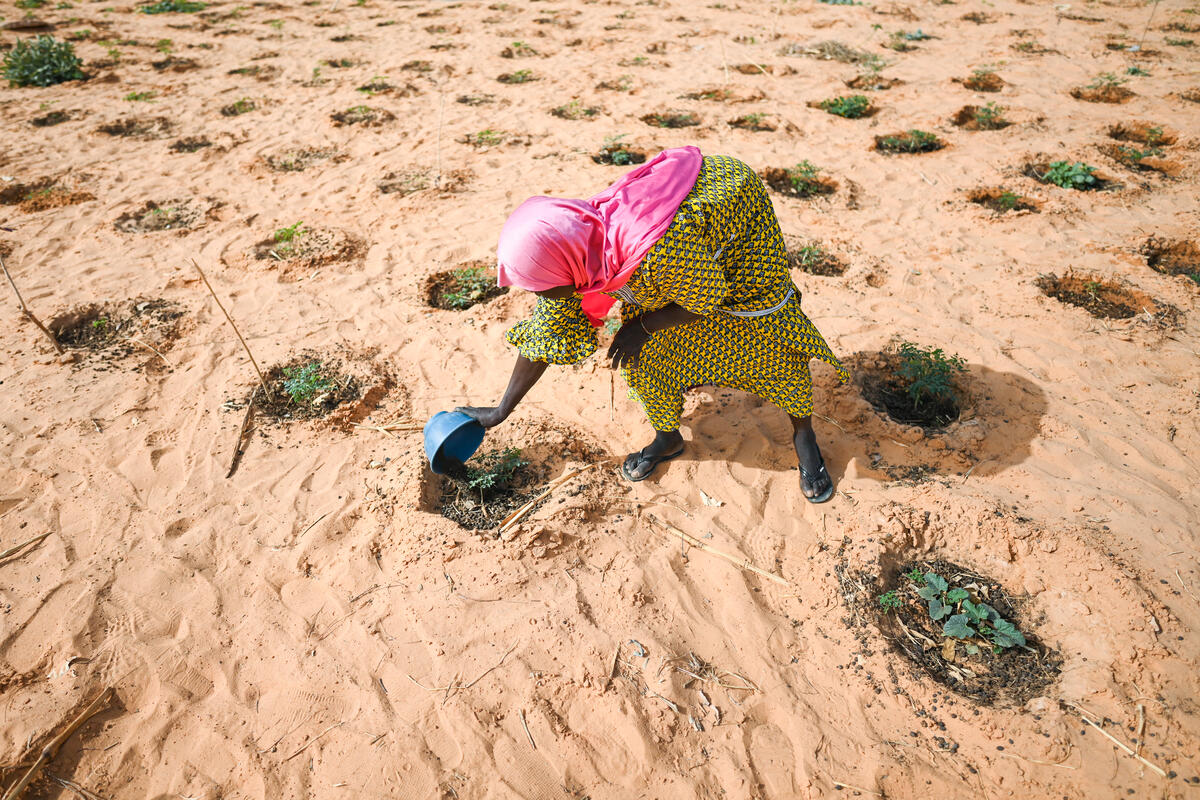UNHCR stresses right to asylum of Mozambicans crossing into Malawi
UNHCR stresses right to asylum of Mozambicans crossing into Malawi
As the number of Mozambicans fleeing to Malawi continues to grow, UNHCR is calling on all parties to respect their right to seek asylum amid signs of pressure to return. More than 6,000 have arrived in Malawi since mid-December, citing clashes between armed elements of the opposition RENAMO and government forces.
Nearly all of the new arrivals are staying in a settlement in Kapise village, Mwanza district, some 100 kilometres south of Malawi's capital, Lilongwe, with others scattered throughout the neighbouring district of Chikwawa.
Mozambican government officials have visited Kapise at least three times since mid-January to ask people why they fled, discuss the possibility of returning to their places of origin and monitor the humanitarian situation of their fellow citizens. The Mozambican government has offered to provide socio-economic assistance should they return.
UNHCR has expressed concern to both governments that the right to seek asylum and the principle of voluntary repatriation, as enshrined in the UN and Organization for African Union (OAU) conventions on refugees, should not be compromised. Both governments were reminded of their international obligations toward refugees and asylum seekers and the principles of voluntary return as regards this caseload. UNHCR calls upon all parties to respect the humanitarian nature of the influx of Mozambicans into Malawi.
UNHCR and its partners are helping the Malawi government to provide protection and humanitarian assistance to these Mozambicans. After boosting its registration capacity, UNHCR has registered all of the new arrivals in Kapise, with the figure currently standing at 6,013, mostly women and children.
The World Food Programme has distributed food rations sufficient for two months to all of the families in Kapise. They have also been given plastic sheeting, sleeping mats, mosquito nets, blankets, kitchen sets, tarpaulins and hygiene items.
UNICEF has been funding the construction of showers and latrines in an area where malaria and cholera are a concern. Large numbers of the Mozambicans have been visiting the health clinic in Kapise run by Médecins Sans Frontières, which is running awareness campaigns on malaria prevention and the proper use of mosquito nets. Of six boreholes that MSF drilled since last month, two are providing a sufficient water supply.
The Malawian government has decided that the new arrivals should remain in Kapise in the hope that fighting will cease soon and they can return to Mozambique. Additional land has been allocated by the village chiefs and district authorities to accommodate new arrivals.
But the village is crowded and UNHCR is working on plans to decongest the settlement, with more land required to accommodate the growing number of new arrivals. We have appealed to the government to identify a new site further away from the border and with adequate land to enable the decongestion of Kapise.
Malawi already hosts some 25,000 refugees and asylum seekers, mostly from the Great Lakes region and the Horn of Africa, in Dzaleka camp located some 35 kms from Lilongwe. This camp is stretched to capacity and with food rations being reduced to 50 per cent since October last year, resources to assist refugees are limited.
For further information, please contact:
- In Pretoria, Tina Ghelli on mobile +27 82 7704189
- In Malawi, Monique Ekoko on mobile +265 88 567 2221
- In Geneva, Leo Dobbs on mobile +41 79 883 6347








